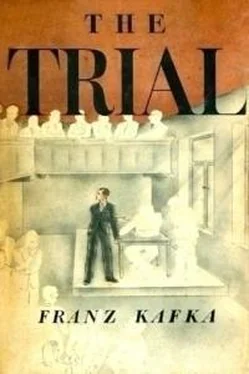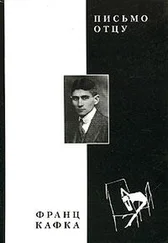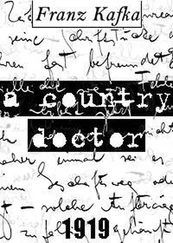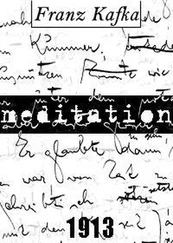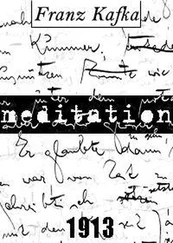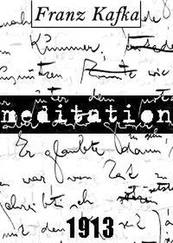Франц Кафка - The Trial
Здесь есть возможность читать онлайн «Франц Кафка - The Trial» — ознакомительный отрывок электронной книги совершенно бесплатно, а после прочтения отрывка купить полную версию. В некоторых случаях можно слушать аудио, скачать через торрент в формате fb2 и присутствует краткое содержание. Год выпуска: 2014, Издательство: epubBooks Classics, Жанр: Классическая проза, на английском языке. Описание произведения, (предисловие) а так же отзывы посетителей доступны на портале библиотеки ЛибКат.
- Название:The Trial
- Автор:
- Издательство:epubBooks Classics
- Жанр:
- Год:2014
- ISBN:нет данных
- Рейтинг книги:3 / 5. Голосов: 1
-
Избранное:Добавить в избранное
- Отзывы:
-
Ваша оценка:
- 60
- 1
- 2
- 3
- 4
- 5
The Trial: краткое содержание, описание и аннотация
Предлагаем к чтению аннотацию, описание, краткое содержание или предисловие (зависит от того, что написал сам автор книги «The Trial»). Если вы не нашли необходимую информацию о книге — напишите в комментариях, мы постараемся отыскать её.
The Trial — читать онлайн ознакомительный отрывок
Ниже представлен текст книги, разбитый по страницам. Система сохранения места последней прочитанной страницы, позволяет с удобством читать онлайн бесплатно книгу «The Trial», без необходимости каждый раз заново искать на чём Вы остановились. Поставьте закладку, и сможете в любой момент перейти на страницу, на которой закончили чтение.
Интервал:
Закладка:
K. didn't concern himself long with the guard or these people, especially as he saw a turning off the corridor, about half way along it on the right hand side, where there was no door to stop him going that way. He asked the usher whether that was the right way to go, the usher nodded, and that is the way that K. went. The usher remained always one or two steps behind K, which he found irritating as in a place like this it could give the impression that he was being driven along by someone who had arrested him, so he frequently waited for the usher to catch up, but the usher always remained behind him. In order to put an end to his discomfort, K. finally said, "Now that I've seen what it looks like here, I'd like to go." "You haven't seen everything yet," said the usher ingenuously. "I don't want to see everything," said K., who was also feeling very tired, "I want to go, what is the way to the exit?" "You haven't got lost, have you?" asked the usher in amazement, "you go down this way to the corner, then right down the corridor straight ahead as far as the door." "Come with me," said K., "show me the way, I'll miss it, there are so many different ways here." "It's the only way there is," said the usher, who had now started to sound quite reproachful, "I can't go back with you again, I've got to hand in my report, and I've already lost a lot of time because of you as it is." "Come with me!" K. repeated, now somewhat sharper as if he had finally caught the usher out in a lie. "Don't shout like that," whispered the usher, "there's offices all round us here. If you don't want to go back by yourself come on a bit further with me or else wait here till I've sorted out my report, then I'll be glad to go back with you again." "No, no," said K., "I will not wait and you must come with me now." K. had still not looked round at anything at all in the room where he found himself, and it was only when one of the many wooden doors all around him opened that he noticed it. A young woman, probably summoned by the loudness of K.'s voice, entered and asked, "What is it the gentleman wants?" In the darkness behind her there was also a man approaching. K. looked at the usher. He had, after all, said that no–one would take any notice of K., and now there were two people coming, it only needed a few and everyone in the office would become aware of him and asking for explanations as to why he was there. The only understandable and acceptable thing to say was that he was accused of something and wanted to know the date of his next hearing, but this was an explanation he did not want to give, especially as it was not true – he had only come out of curiosity. Or else, an explanation even less usable, he could say that he wanted to ascertain that the court was as revolting on the inside as it was on the outside. And it did seem that he had been quite right in this supposition, he had no wish to intrude any deeper, he was disturbed enough by what he had seen already, he was not in the right frame of mind just then to face a high official such as might appear from behind any door, and he wanted to go, either with the usher of the court or, if needs be, alone.
But he must have seemed very odd standing there in silence, and the young woman and the usher were indeed looking at him as if they thought he would go through some major metamorphosis any second which they didn't want to miss seeing. And in the doorway stood the man whom K. had noticed in the background earlier, he held firmly on to the beam above the low door swinging a little on the tips of his feet as if becoming impatient as he watched. But the young woman was the first to recognise that K.'s behaviour was caused by his feeling slightly unwell, she brought a chair and asked, "Would you not like to sit down?" K. sat down immediately and, in order to keep his place better, put his elbows on the armrests. "You're a little bit dizzy, aren't you?" she asked him. Her face was now close in front of him, it bore the severe expression that many young women have just when they're in the bloom of their youth. "It's nothing for you to worry about," she said, "that's nothing unusual here, almost everyone gets an attack like that the first time they come here. This is your first time is it? Yes, it's nothing unusual then. The sun burns down on the roof and the hot wood makes the air so thick and heavy. It makes this place rather unsuitable for offices, whatever other advantages it might offer. But the air is almost impossible to breathe on days when there's a lot of business, and that's almost every day. And when you think that there's a lot of washing put out to dry here as well – and we can't stop the tenants doing that – it's not surprising you started to feel unwell. But you get used to the air alright in the end. When you're here for the second or third time you'll hardly notice how oppressive the air is. Are you feeling any better now?" K. made no answer, he felt too embarrassed at being put at the mercy of these people by his sudden weakness, and learning the reason for feeling ill made him feel not better but a little worse. The girl noticed it straight away, and to make the air fresher for K., she took a window pole that was leaning against the wall and pushed open a small hatch directly above K.'s head that led to the outside. But so much soot fell in that the girl had to immediately close the hatch again and clean the soot off K.'s hands with her handkerchief, as K. was too tired to do that for himself. He would have liked just to sit quietly where he was until he had enough strength to leave, and the less fuss people made about him the sooner that would be. But then the girl said, "You can't stay here, we're in people's way here … " K. looked at her as if to ask whose way they were impeding. "If you like, I can take you to the sick room," and turning to the man in the doorway said, "please help me". The man immediately came over to them, but K. did not want to go to the sick room, that was just what he wanted to avoid, being led further from place to place, the further he went the more difficult it must become. So he said, "I am able to walk now," and stood up, shaking after becoming used to sitting so comfortably. But then he was unable to stay upright. "I can't manage it," he said shaking his head, and sat down again with a sigh. He remembered the usher who, despite everything, would have been able to lead him out of there but who seemed to have gone long before. K. looked out between the man and the young woman who were standing in front of him but was unable to find the usher. "I think," said the man, who was elegantly dressed and whose appearance was made especially impressive with a grey waistcoat that had two long, sharply tailored points, "the gentleman is feeling unwell because of the atmosphere here, so the best thing, and what he would most prefer, would be not to take him to the sick room but get him out of the offices altogether." "That's right," exclaimed K., with such joy that he nearly interrupted what the man was saying, "I'm sure that'll make me feel better straight away, I'm really not that weak, all I need is a little support under my arms, I won't cause you much trouble, it's not such a long way anyway, lead me to the door and then I'll sit on the stairs for a while and soon recover, as I don't suffer from attacks like this at all, I'm surprised at it myself. I also work in an office and I'm quite used to office air, but here it seems to be too strong, you've said so yourselves. So please, be so kind as to help me on my way a little, I'm feeling dizzy, you see, and it'll make me ill if I stand up by myself." And with that he raised his shoulders to make it easier for the two of them to take him by the arms.
The man, however, didn't follow this suggestion but just stood there with his hands in his trouser pockets and laughed out loud. "There, you see," he said to the girl, "I was quite right. The gentleman is only unwell here, and not in general." The young woman smiled too, but lightly tapped the man's arm with the tips of her fingers as if he had allowed himself too much fun with K. "So what do you think, then?" said the man, still laughing, "I really do want to lead the gentleman out of here." "That's alright, then," said the girl, briefly inclining her charming head. "Don't worry too much about him laughing," said the girl to K., who had become unhappy once more and stared quietly in front of himself as if needing no further explanation. "This gentleman – may I introduce you?" – (the man gave his permission with a wave of the hand) – "so, this gentleman's job is to give out information. He gives all the information they need to people who are waiting, as our court and its offices are not very well known among the public he gets asked for quite a lot. He has an answer for every question, you can try him out if you feel like it. But that's not his only distinction, his other distinction is his elegance of dress. We, that's to say all of us who work in the offices here, we decided that the information–giver would have to be elegantly dressed as he continually has to deal with the litigants and he's the first one they meet, so he needs to give a dignified first impression. The rest of us I'm afraid, as you can see just by looking at me, dress very badly and old–fashioned; and there's not much point in spending much on clothes anyway, as we hardly ever leave the offices, we even sleep here. But, as I said, we decided that the information–giver would have to have nice clothes. As the management here is rather peculiar in this respect, and they would get them for us, we had a collection – some of the litigants contributed too – and bought him these lovely clothes and some others besides. So everything would be ready for him to give a good impression, except that he spoils it again by laughing and frightening people." "That's how it is," said the man, mocking her, "but I don't understand why it is that you're explaining all our intimate facts to the gentleman, or rather why it is that you're pressing them on him, as I'm sure he's not all interested. Just look at him sitting there, it's clear he's occupied with his own affairs." K. just did not feel like contradicting him.. The girl's intention may have been good, perhaps she was under instructions to distract him or to give him the chance to collect himself, but the attempt had not worked. "I had to explain to him why you were laughing," said the girl. "I suppose it was insulting." "I think he would forgive even worse insults if I finally took him outside." K. said nothing, did not even look up, he tolerated the two of them negotiating over him like an object, that was even what suited him best. But suddenly he felt the information–giver's hand on one arm and the young woman's hand on the other. "Up you get then, weakling," said the information–giver. "Thank you both very much," said K., pleasantly surprised, as he slowly rose and personally guided these unfamiliar hands to the places where he most needed support. As they approached the corridor, the girl said quietly into K.'s ear, "I must seem to think it's very important to show the information–giver in a good light, but you shouldn't doubt what I say, I just want to say the truth. He isn't hard–hearted. It's not really his job to help litigants outside if they're unwell but he's doing it anyway, as you can see. I don't suppose any of us is hard–hearted, perhaps we'd all like to be helpful, but working for the court offices it's easy for us to give the impression we are hard–hearted and don't want to help anyone. It makes me quite sad." "Would you not like to sit down here a while?" asked the information–giver, there were already in the corridor and just in front of the defendant whom K. had spoken to earlier. K. felt almost ashamed to be seen by him, earlier he had stood so upright in front of him and now he had to be supported by two others, his hat was held up by the information–giver balanced on outstretched fingers, his hair was dishevelled and hung down onto the sweat on his forehead. But the defendant seemed to notice nothing of what was going on and just stood there humbly, as if wanting to apologise to the information–giver for being there. The information–giver looked past him. "I know," he said, "that my case can't be settled today, not yet, but I've come in anyway, I thought, I thought I could wait here anyway, it's Sunday today, I've got plenty of time, and I'm not disturbing anyone here." "There's no need to be so apologetic," said the information–giver, "it's very commendable for you to be so attentive. You are taking up space here when you don't need to but as long as you don't get in my way I will do nothing to stop you following the progress of your case as closely as you like. When one has seen so many people who shamefully neglect their cases one learns to show patience with people like you. Do sit down." "He's very good with the litigants," whispered the girl. K. nodded, but started to move off again when the information–giver repeated, "Would you not like to sit down here a while?" "No," said K., "I don't want to rest." He had said that as decisively as he could, but in fact it would have done him a lot of good to sit down. It was as if he were suffering sea–sickness. He felt as if he were on a ship in a rough sea, as if the water were hitting against the wooden walls, a thundering from the depths of the corridor as if the torrent were crashing over it, as if the corridor were swaying and the waiting litigants on each side of it rising and sinking. It made the calmness of the girl and the man leading him all the more incomprehensible. He was at their mercy, if they let go of him he would fall like a board. Their little eyes glanced here and there, K. could feel the evenness of their steps but could not do the same, as from step to step he was virtually being carried. He finally noticed they were speaking to him but he did not understand them, all he heard was a noise that filled all the space and through which there seemed to be an unchanging higher note sounding, like a siren. "Louder," he whispered with his head sunk low, ashamed at having to ask them to speak louder when he knew they had spoken loudly enough, even if it had been, for him, incomprehensible. At last, a draught of cool air blew in his face as if a gap had been torn out in the wall in front of him, and next to him he heard someone say, "First he says he wants to go, and then you can tell him a hundred times that this is the way out and he doesn't move." K. became aware that he was standing in front of the way out, and that the young woman had opened the door. It seemed to him that all his strength returned to him at once, and to get a foretaste of freedom he stepped straight on to one of the stairs and took his leave there of his companions, who bowed to him. "Thank you very much," he repeated, shook their hands once more and did not let go until he thought he saw that they found it hard to bear the comparatively fresh air from the stairway after being so long used to the air in the offices. They were hardly able to reply, and the young woman might even have fallen over if K. had not shut the door extremely fast. K. then stood still for a while, combed his hair with the help of a pocket mirror, picked up his hat from the next stair – the information–giver must have thrown it down there – and then he ran down the steps so fresh and in such long leaps that the contrast with his previous state nearly frightened him. His normally sturdy state of health had never prepared him for surprises such as this. Did his body want to revolt and cause him a new trial as he was bearing the old one with such little effort? He did not quite reject the idea that he should see a doctor the next time he had the chance, but whatever he did – and this was something on which he could advise himself – he wanted to spend all Sunday mornings in future better than he had spent this one.
Читать дальшеИнтервал:
Закладка:
Похожие книги на «The Trial»
Представляем Вашему вниманию похожие книги на «The Trial» списком для выбора. Мы отобрали схожую по названию и смыслу литературу в надежде предоставить читателям больше вариантов отыскать новые, интересные, ещё непрочитанные произведения.
Обсуждение, отзывы о книге «The Trial» и просто собственные мнения читателей. Оставьте ваши комментарии, напишите, что Вы думаете о произведении, его смысле или главных героях. Укажите что конкретно понравилось, а что нет, и почему Вы так считаете.
